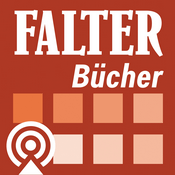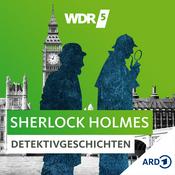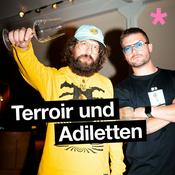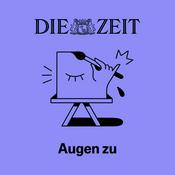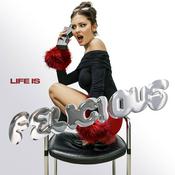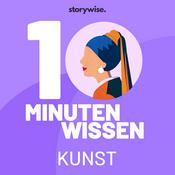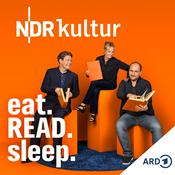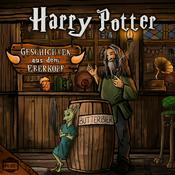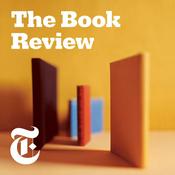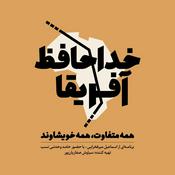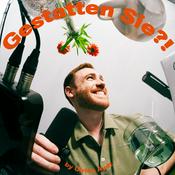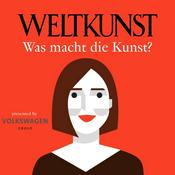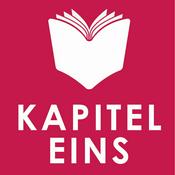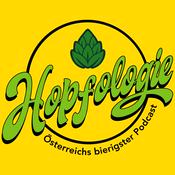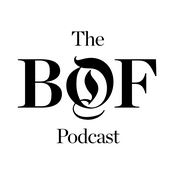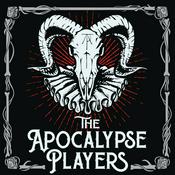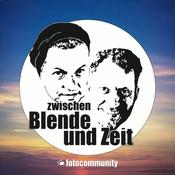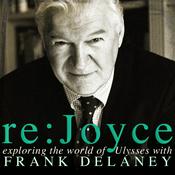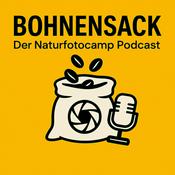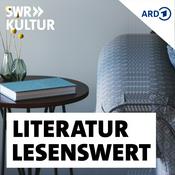77 Episoden
Why 12 Million Tons of Glass Goes to Landfills Every Year (And How We're Stopping It)
21.1.2026 | 54 Min.Every year, 12 million tons of architectural glass from skyscrapers and office buildings ends up in landfills. Even though you diligently put your glass bottles in the recycling bin, only 30% of collected glass actually gets recycled back into glass.
Sydney Mainster, VP of Sustainability at The Durst Organization, is on a mission to change that. After watching hundreds of tons of perfectly recyclable glass from a 40-story building go to waste, she pioneered a partnership to recycle skyscraper windows across New York City.
In this episode, Sydney and David Entwistle (Director of Major Projects at Saint-Gobain Glass) reveal:
- Why glass is the ONLY material recyclers lose money on
- The hidden contamination problem that shuts down $40M furnaces
- How "sneaky sustainability" is making glass recycling standard practice
- Why interior office glass is the secret to scaling this solution
- The roadblocks preventing this from going national
Sydney and David are completely reimagining how we handle one of our most valuable building materials.
🔗 Connect with Sydney Mainster: https://www.linkedin.com/in/smainster/🔗 Connect with David Entwistle: https://www.linkedin.com/in/david-entwistle-b51b2531/
Chapters
00:00 Circular Economy in Glass Recycling00:37 Roles and Responsibilities in Sustainability00:54 The Glass Recycling Challenge07:37 Understanding Architectural Glass vs. Container Glass16:15 Origin Stories of Glass Recycling Programs27:03 Collaboration and Learning in the Industry31:30 The Journey of Deconstruction and Sustainability33:37 Overcoming the Status Quo in Construction35:12 Convincing Stakeholders for Sustainable Practices38:40 The Role of Case Studies in Advocacy40:19 Scaling Challenges in Sustainability43:46 Looking Forward: The Future of Sustainability- What if a powerful climate solution in cities isn’t a new building, but the roof that’s already there? As heat waves intensify across Europe, architect and MIT-trained educator Olivier Faber explains how his firm, Roofscapes is transforming overlooked rooftops into cooling, accessible, green infrastructure. Starting with Paris’s iconic zinc roofs, the conversation unpacks why existing buildings are misaligned with today’s climate, how shading and vegetation can dramatically reduce indoor temperatures without air conditioning, and why renovation and adaptation may matter more than new construction in the decades ahead. Along the way, Olivier reveals the political, technical, and cultural battles behind testing climate solutions in historic cities, and why climate adaptation is about changing how we value the buildings we already have.
Thumbnail Image courtesy of Roofscapes
Subscribe to Most Podern on:
Spotify - https://open.spotify.com/show/3zYvX2lRZOpHcZW41WGVrpApple Podcasts - https://podcasts.apple.com/us/podcast/most-podern-podcast/id1725756164Youtube - https://www.youtube.com/@MostPodernInstagram - https://www.instagram.com/most.podernLinkedIn - https://www.linkedin.com/company/most-podern
Keywords
architecture, climate change, renovation, urban design, sustainability, Roofscapes, green roofs, preservation, adaptation, building practices, Paris, urban design, heat island effect
Chapters
00:00 Background and Journey into Architecture
00:51 Exploring Alternative Architecture Practices
03:52 Introducing Roofscapes and Its Mission
06:17 Physical Adaptation: Before and After
07:16 The Challenges of Zinc Roofs in Urban Design
10:29 Innovative Solutions for Urban Heat Management
11:34Pitching Green Roof Solutions to Building Owners
14:08 Navigating the Complexities of Building Regulations
17:14 Measuring the Impact of Climate Adaptation Projects
24:09 Future Directions for Climate Adaptation in Architecture
Links
Olivier Faber - https://www.linkedin.com/in/olivier-faber
Roofscapes - https://www.roofscapes.studio/MITx - https://mitxonline.mit.edu/ - The American suburban dream is unsustainable—but we're not giving up on it.
David Kooris, Executive Director of the Connecticut Municipal Development Authority and lecturer at Yale, explains why sprawl no longer works as an economic engine and how we can retrofit existing suburbs to be more prosperous, walkable, and sustainable.
In this episode, we explore:✓ Why the suburban development model is fiscally unsustainable✓ How to transform aging strip malls into thriving town centers✓ The art of community engagement that builds consensus (not opposition)✓ Why making car-dependent places walkable has more impact than you think✓ Planning concepts everyone should understand about their built environment
https://www.wearecmda.com/
Chapters
00:00 The Impetus for Urban Planning00:00 Understanding the Role of Municipal Development00:00 Examples of Community Engagement00:00 David Kooris's Background and Insights00:41 The Importance of Long-Term Planning00:41 Retrofitting Suburban Landscapes00:41 Strategies for Community Improvement00:41 Engaging Future Residents in Development Conversations00:41 The Importance of Diverse Stakeholder Engagement00:41 Overcoming Community Resistance to Change00:41 Planning 101: Essential Concepts for Community Engagement00:41 Understanding the Complexities of the Built Environment00:41 Streamlining Community Engagement in Planning00:41 Innovative Approaches to Municipal Development00:41 Reflecting on the Current Era of Urban Planning - What hidden design choices make a 125,000-person festival feel effortless—and what happens when being off by just one foot throws everything into chaos? Why do some festivals become cultural icons while others collapse spectacularly? And how did one architect watching the Fyre Festival documentary suddenly realize, “I could do this a million times better”—and then actually go do it?
In this episode, Reiko Wei, design production manager at Goldenvoice (the team behind Coachella & Stagecoach), pulls back the curtain on the invisible systems, political negotiations, spatial puzzles, and human-centered decisions that shape the world’s most iconic music festivals. She reveals how a show built on 1200 acres needs precision down to a single foot, why the fire marshal has the ultimate power, how Gen Z is reshaping festival culture, and why physical spaces for real connection matter more than ever in a post-COVID world.
If you’ve ever wondered how a “giant party” becomes a safe, seamless, deeply human experience—or why these events still matter—this conversation will change how you see every festival you attend.
https://goldenvoice.com/
https://www.coachella.com/
https://www.stagecoachfestival.com/
Chapters
00:00 Understanding Coachella: The Festival Experience03:19 The Role of Logistics in Event Planning06:41 Reiko's Transition from Architecture to Event Planning10:10 Collaboration with Authorities and Stakeholders13:35 The Evolution of Coachella: Adapting to Change17:00 Designing for Experience: The Importance of Flow21:15 The Art of Curation in Festivals25:02 Shifting Audience Dynamics Post-COVID27:11 The Importance of In-Person Connections30:43 Navigating Loneliness and Community31:51 Reflections on the Current Era - How do we build faster, smarter, and more affordably in a world running out of patience and running short on skilled labor? Tom Hardiman, Executive Director of the Modular Building Institute, joins Alex Yuen and Libo Li to explain how modular construction can reshape the built environment. From cutting construction timelines in half to reducing waste and expanding access to housing, Tom shows why modular is not a trend but a practical tool for a more sustainable, efficient, and inclusive future. The conversation unpacks the realities behind factory based building, the politics that slow adoption, and how modular can help cities facing affordability and capacity challenges.
Subscribe to Most Podern on:
Spotify - https://open.spotify.com/show/3zYvX2lRZOpHcZW41WGVrpApple Podcasts - https://podcasts.apple.com/us/podcast/most-podern-podcast/id1725756164Youtube - https://www.youtube.com/@MostPodernInstagram - https://www.instagram.com/most.podernLinkedIn - https://www.linkedin.com/company/most-podern
Keywords
modular construction, prefab housing, offsite construction, Modular Building Institute, MBI, Tom Hardiman, affordable housing solutions, housing crisis, construction technology, manufacturing in construction, sustainable building, prefabricated buildings, industrialized construction, factory-built homes, housing innovation, construction efficiency, future of construction, how to build faster, Most Podern podcast
Chapters
00:00 Introduction to Modular Construction
00:53 Defining Modular Construction
02:02 Benefits of Modular Construction
04:59 The Ecosystem of Modular Construction
06:51 Coordination in Modular Projects
08:20 Cost Considerations in Modular Construction
09:53 The Importance of Time in Construction
11:30 Architects and Modular Construction
12:53 Successful Modular Projects
14:38 Addressing Design Concerns in Modular Construction
17:32 Standardization vs. Customization
19:45 Regulatory Challenges in Modular Construction
20:50 Education and Resources for Modular Construction
21:13 The Role of Education in Modular Construction
24:27 Attracting Young Talent to Modular Construction
28:32 Barriers to Adoption of Modular Construction
30:56 Navigating Politics and Labor Relations
34:51 Integrating Traditional and Modular Construction
37:52 The Future of Modular Construction
40:12 Upcoming Events and Community Engagement
Links
Tom Hardimanlinkedin.com/in/tomhardiman
Modular Building Institute (MBI)
https://www.modular.org/
World of Modular Conference
https://www.modular.org/wom/
MBI Research and Resources
https://www.modular.org/resources/
Weitere Kunst Podcasts
Trending Kunst Podcasts
Über Most Podern Podcast
The podcast about the Built Environment, with the minds shaping it, for the people living in it.
Why does the built environment feel broken — and what would it take to fix it?
Most Podern is about how the built world really works. We dig into the systems shaping architecture, urbanism, housing, and public spaces, and talk with the people actually building change: architects, planners, developers, and urban thinkers.
Podcast-WebsiteHöre Most Podern Podcast, Besser lesen mit dem FALTER und viele andere Podcasts aus aller Welt mit der radio.at-App
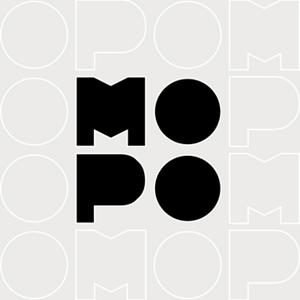
Hol dir die kostenlose radio.at App
- Sender und Podcasts favorisieren
- Streamen via Wifi oder Bluetooth
- Unterstützt Carplay & Android Auto
- viele weitere App Funktionen
Hol dir die kostenlose radio.at App
- Sender und Podcasts favorisieren
- Streamen via Wifi oder Bluetooth
- Unterstützt Carplay & Android Auto
- viele weitere App Funktionen


Most Podern Podcast
Code scannen,
App laden,
loshören.
App laden,
loshören.


